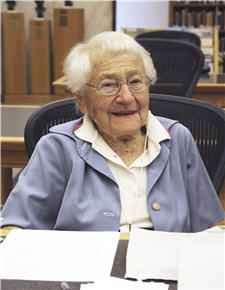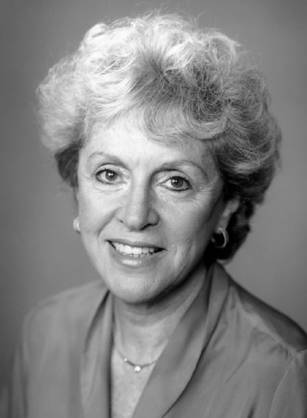Shirley F. Marks (born 1946) is an American psychiatrist. She was the second African-American woman to graduate from Harvard Medical School. [1]
Shirley F. Marks (born 1946) is an American psychiatrist. She was the second African-American woman to graduate from Harvard Medical School. [1]
Marks was born and raised in Tyler, Texas, attending public schools through high school. She attended Spelman College and earned a bachelor's degree in biology and went on to Harvard Medical School, where she earned her doctorate in 1973. She graduated from psychiatry residency and earned a Master's of Public Health degree in 1976 from the Harvard School of Public Health. [1] While at Spelman, Marks earned a scholarship to study abroad in Vienna, at the same time as Maxine Hayes, and both returned to complete their studies at Spelman and to study medicine at Harvard. [2]
Beginning in residency, Marks researched community psychiatry and psychiatric epidemiology. Her professional career began in 1976, when she became a professor at Baylor College of Medicine and directed the local Veterans Affairs outpatient addiction program. In the 1990s, she began to work with incarcerated women and with women who have experienced significant trauma. She has raised awareness of depression, suicide (especially of young black men), and violence against women as public health concerns. She has also advocated for greater cultural awareness among psychiatric providers. [1]
A psychiatrist is a physician who specializes in psychiatry. Psychiatrists are physicians and evaluate patients to determine whether their symptoms are the result of a physical illness, a combination of physical and mental ailments or strictly mental issues. Sometimes a psychiatrist works within a multi-disciplinary team, which may comprise clinical psychologists, social workers, occupational therapists, and nursing staff. Psychiatrists have broad training in a biopsychosocial approach to the assessment and management of mental illness.
Elissa Panush Benedek is an American psychiatrist specializing in child and adolescent psychiatry and forensic psychiatry. She is an adjunct clinical professor of psychiatry at the University of Michigan Medical Center. She served as director of research and training at the Center for Forensic Psychiatry in Ann Arbor for 25 years and was president of the American Psychiatric Association from 1990 to 1991. She is regarded as an expert on child abuse and trauma, and has testified in high-profile court cases. She also focuses on ethics, psychiatric aspects of disasters and terrorism, and domestic violence. In addition to her own books, book chapters, and articles, she has collaborated with her husband, attorney Richard S. Benedek, on studies of divorce, child custody, and child abuse.

Leon Eisenberg was an American child psychiatrist, social psychiatrist and medical educator who "transformed child psychiatry by advocating research into developmental problems".

Carola Blitzman Eisenberg was an Argentine-American psychiatrist who became the first woman to hold the position of dean of students at Massachusetts Institute of Technology. From 1978 to 1990, she was the dean of student affairs at Harvard Medical School (HMS). She has for a long time been lecturer in the newly renamed Department of Global Health and Social Medicine at HMS. She was also both a founding member of Physicians for Human Rights and an honorary psychiatrist with the Massachusetts General Hospital in Boston, a longstanding position there.

Cambridge Hospital is a community teaching hospital located in Cambridge, Massachusetts. It is one of three hospitals that are parts of Cambridge Health Alliance.
Ronald O. Rieder is an American psychiatrist who served as Vice Chair for Education and Director of the Residency Training Program in the Department of Psychiatry at the Mount Sinai School of Medicine in New York City. Dr. His interests have been in the areas of schizophrenia, genetics and psychiatric education. Prior to joining Mount Sinai's faculty as a tenured professor in 2007, he served for several decades as the residency training director at Columbia University's College of Physicians & Surgeons. He was President of the American Association of Directors of Psychiatric Residency Training in 1992-1993 and in 2007 received the Vestermark Award from the American Psychiatric Association, that organization's highest award for psychiatric education. He is also the author of approximately sixty original papers in the fields of psychiatry and psychiatric education.
Addiction psychiatry is a medical subspecialty within psychiatry that focuses on the evaluation, diagnosis, and treatment of people who have one or more disorders related to addiction. This may include disorders involving legal and illegal drugs, gambling, sex, food, and other impulse control disorders. Addiction psychiatrists are substance use disorder experts. Growing amounts of scientific knowledge, such as the health effects and treatments for substance use disorders, have led to advancements in the field of addiction psychiatry. These advancements in understanding the neurobiology of rewarding behavior, along with federal funding, has allowed for ample opportunity for research in the discipline of addiction psychiatry. Addiction psychiatry is an expanding field, and currently there is a high demand for substance use disorder experts in both the private and public sector.
Steven Samuel "Steve" Sharfstein is an American psychiatrist. He was secretary of the American Psychiatric Association from 1991 to 1995, its vice president from 2002 to 2004, and president from 2005 to 2006. Sharfstein also received the Human Rights Award from the American Psychiatric Association in 2007.
Jean Baker Miller (1927–2006) was a psychiatrist, psychoanalyst, social activist, feminist, and author. She wrote Toward a New Psychology of Women, which brings psychological thought together with relational-cultural theory.
Harry C. Solomon (1889–1982), an American neurologist, psychiatrist, researcher, administrator, and clinician, was among the first to advocate for major changes in public psychiatry. He called for the closure of large, public mental hospitals and replaced with community-based facilities.
Nina Vasan is an American psychiatrist and author of the Amazon #1 best-selling book Do Good Well: Your Guide to Leadership, Action and Innovation. She is a Clinical Assistant Professor in the Department of Psychiatry and Behavioral Sciences at Stanford University School of Medicine. She is currently the Founder and Executive Director of Brainstorm: The Stanford Lab for Mental Health Innovation at Stanford University. She won the 2002 Intel International Science and Engineering Fair.
Jeanne Marybeth Spurlock was an American psychiatrist, professor and author. She served as the deputy medical director of the American Psychiatric Association for seventeen years. She chaired the Department of Psychiatry at Meharry Medical College starting in 1968, and she taught at George Washington University and Howard University. She also operated her own private psychiatry practice, and she published several works.

Lucy Dorothy Ozarin was a psychiatrist who served in the United States Navy. She was one of the first women psychiatrists commissioned in the Navy, and she was one of seven female Navy psychiatrists who served during World War II.

Judith L. Rapoport is an American psychiatrist. She is the chief of the Child Psychiatry Branch at the National Institute of Mental Health (NIMH), part of the National Institutes of Health (NIH) in Bethesda, Maryland.

Lawrence Hartmann is a child and adult psychiatrist, social-psychiatric activist, and former President of the American Psychiatric Association (APA). Hartmann played a central role in the APA's 1973 decision to remove homosexuality as a diagnosis of mental illness from its Diagnostic and Statistical Manual. This change decisively changed the modern era of LGBTQ rights by providing support for the overturning of laws and prejudices against homosexuals and by advancing gay civil rights, including the right to immigrate, to adopt, to buy a home, to teach, to marry, and to be left alone.
Danielle Hairston is an American psychiatrist who is Director of Residency Training in the Department of Psychiatry at Howard University College of Medicine, and a practicing psychiatrist in the Division of Consultation-Liaison Psychiatry at the University of Maryland Medical Center in Baltimore, Maryland. Hairston is also the Scientific Program Chair for the Black Psychiatrists of America and the President of the American Psychiatric Association's Black Caucus.
Fanny-Gisela Halpern was an Austrian Jewish neuropsychiatrist. Halpern spent the majority of her life in China and is known for her contribution to the first psychiatric hospital in Shanghai, China. She created mental health awareness in China by creating a psychiatric hospital that is still active today. Halpern dedicated her career to help people with mental health disorders.

Maxine D. Hayes is an American public health expert who was the State Health Officer for Washington state from 1998 until 2013. She was elected to the National Academy of Medicine in 2006 and awarded the American Public Health Association Martha May Eliot Award.
Carol Cooperman Nadelson is an American psychiatrist. In 1984, she was elected the first female president of the American Psychiatric Association (APA).

Raquel Eidelman Cohen was a Peruvian-American child psychiatrist specialized in disaster management. She was a student in the first class including women to graduate from Harvard Medical School, in 1949. She went on to become an international authority on psychological and social consequences of disasters such as Hurricane Mitch in Central America, October 1998, and intervention methods for humanitarian workers, used in assisting survivors of the Mariel boatlift of 1980 and victims of the September 11 attacks.